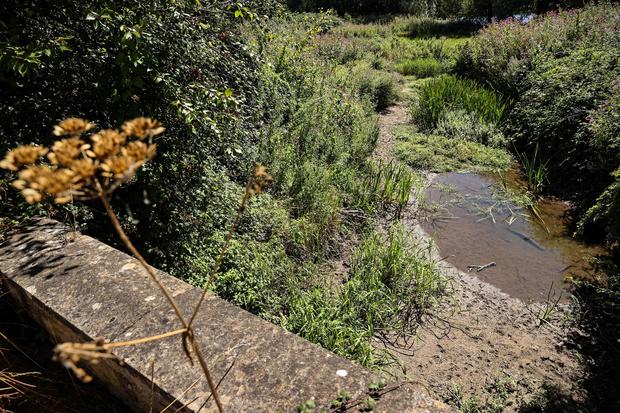An unprecedented heat wave has gripped Great Britain. This summer has seen consistently high temperatures of 80 or even 90 degrees, making it the driest summer on record since the middle of the 1930s. Rivers and reservoirs have dropped far below their typical water levels as a result of the extreme heat.
The powerful River Thames in London is not immune. The famous river’s source, located approximately 90 miles west of the capital near the English community of Ashton Keynes, has dried up for the first time at least since 1976.
Northern England visitor Michael Sanders was horrified by what he saw when he traveled by the monument.
In many areas of the United Kingdom, months without any appreciable rainfall have coupled with July’s record-breaking temperatures to cause damage.
The beginning of the Thames’ 215-mile trip east to the sea was formerly defined by lush green meadows and a meandering stream. Now, all that is left are barren farms and the dried, cracked riverbed.
There is growing concern that the river may not reach its source as the unusual heat wave shows no signs of abating and weather forecasts warn that the severe temperatures may become more frequent during the summer.
And that’s more than just a sentimental worry, as the Thames, as it runs out to sea, supplies fresh water to millions of homes and businesses across the most densely populated region of Britain.

